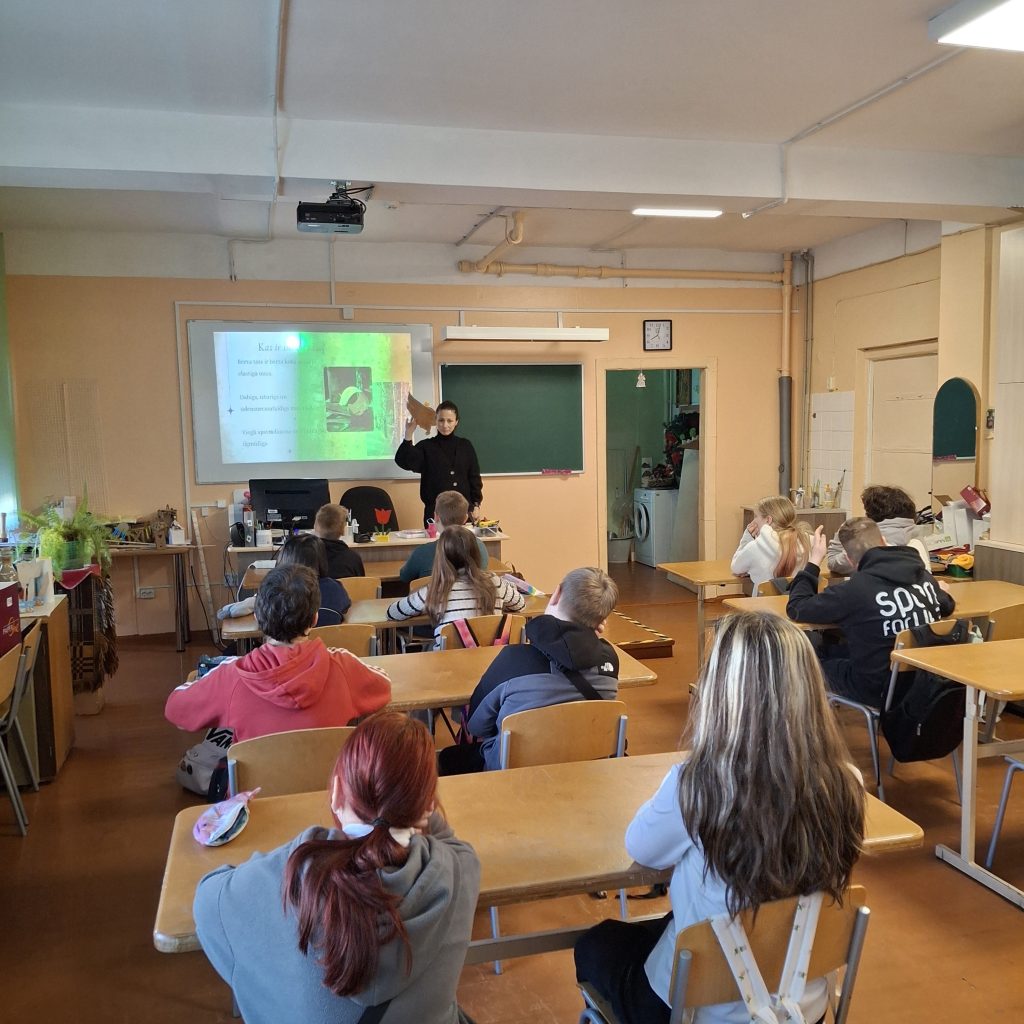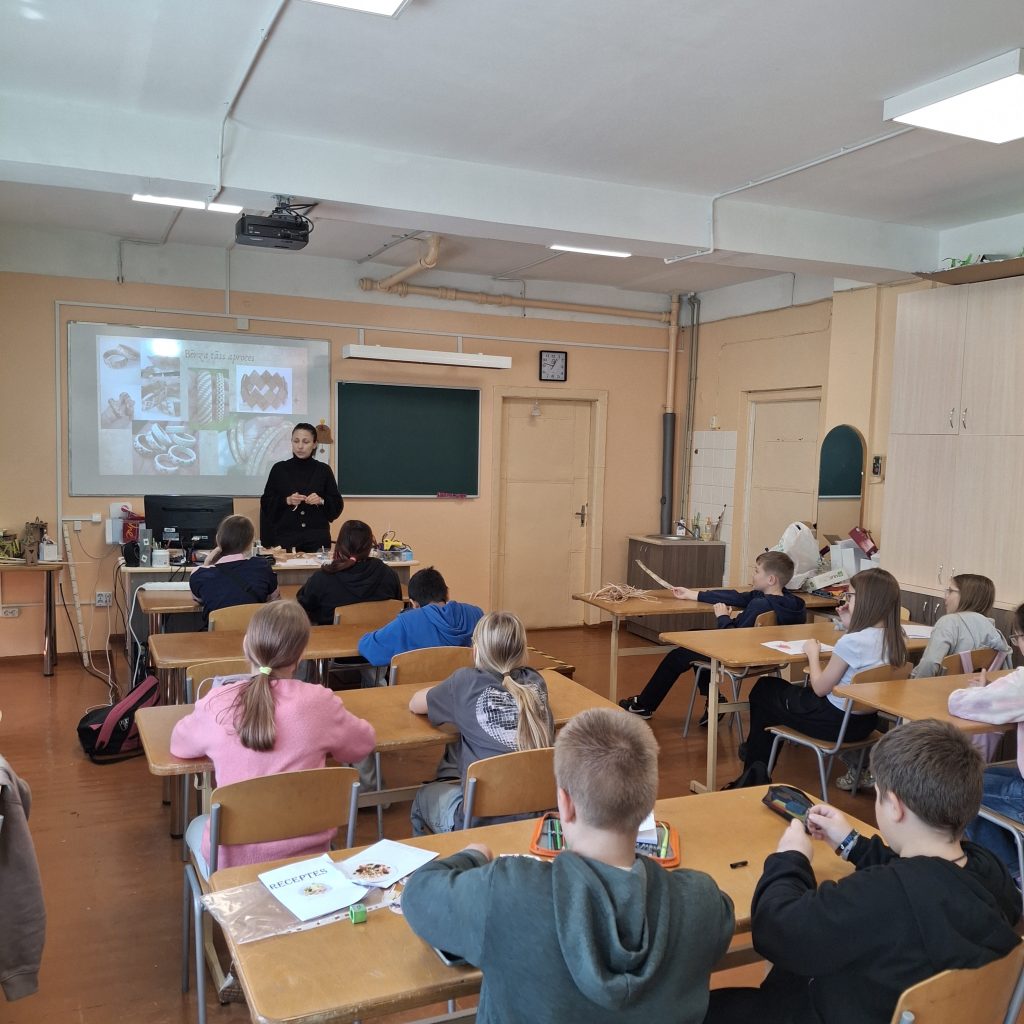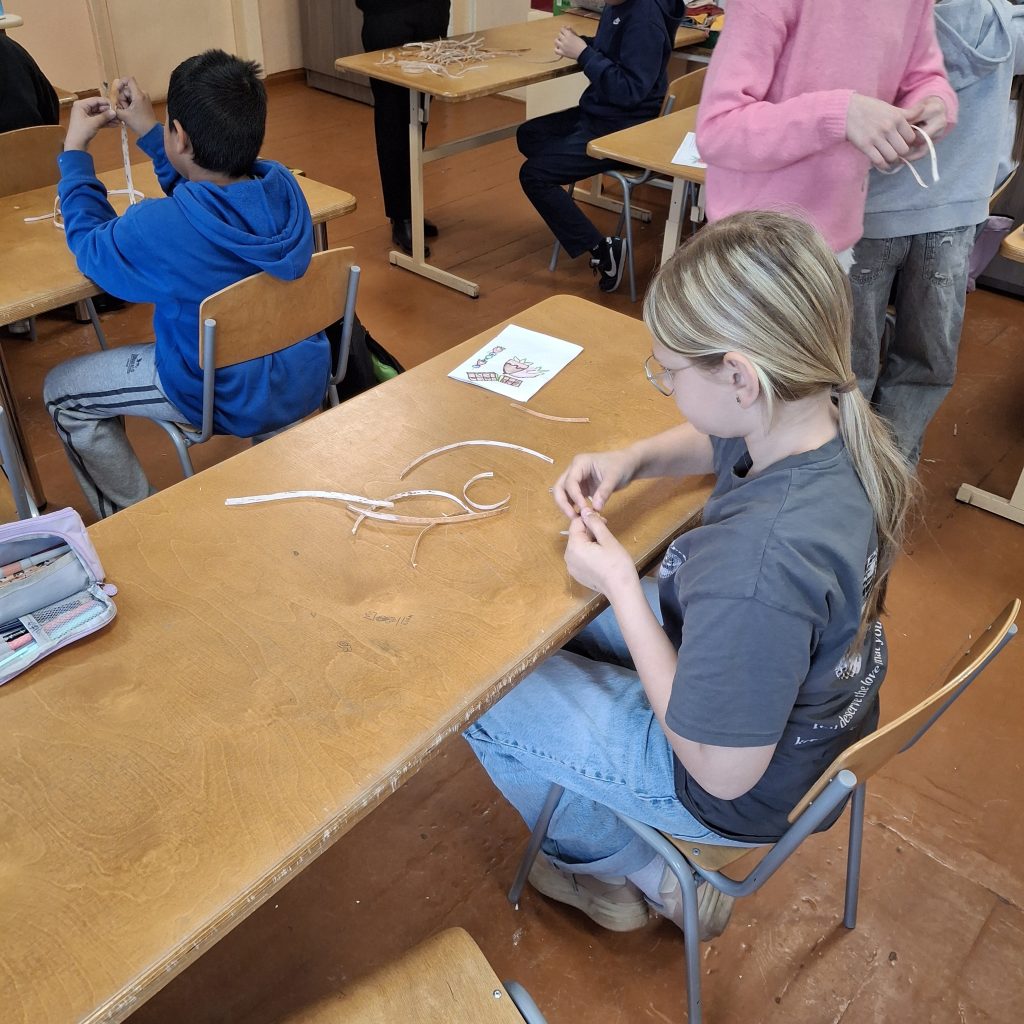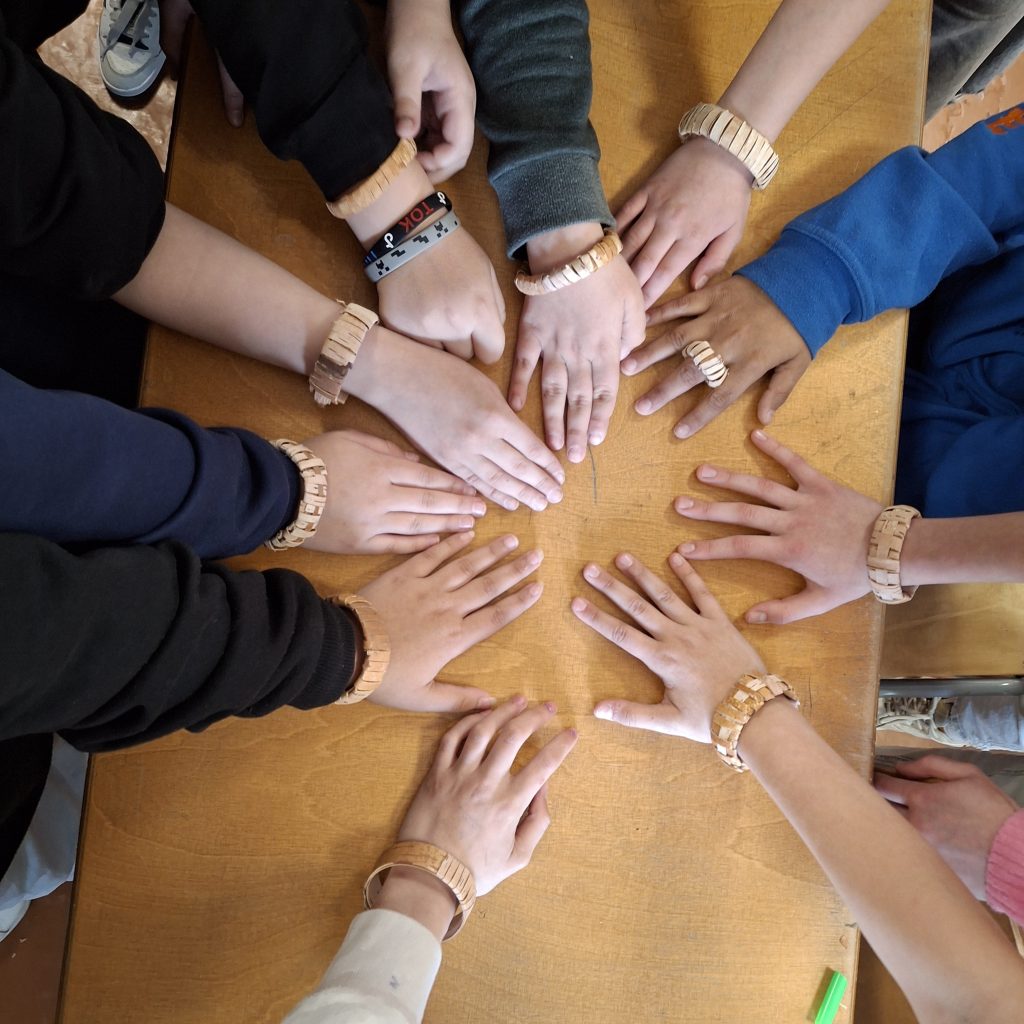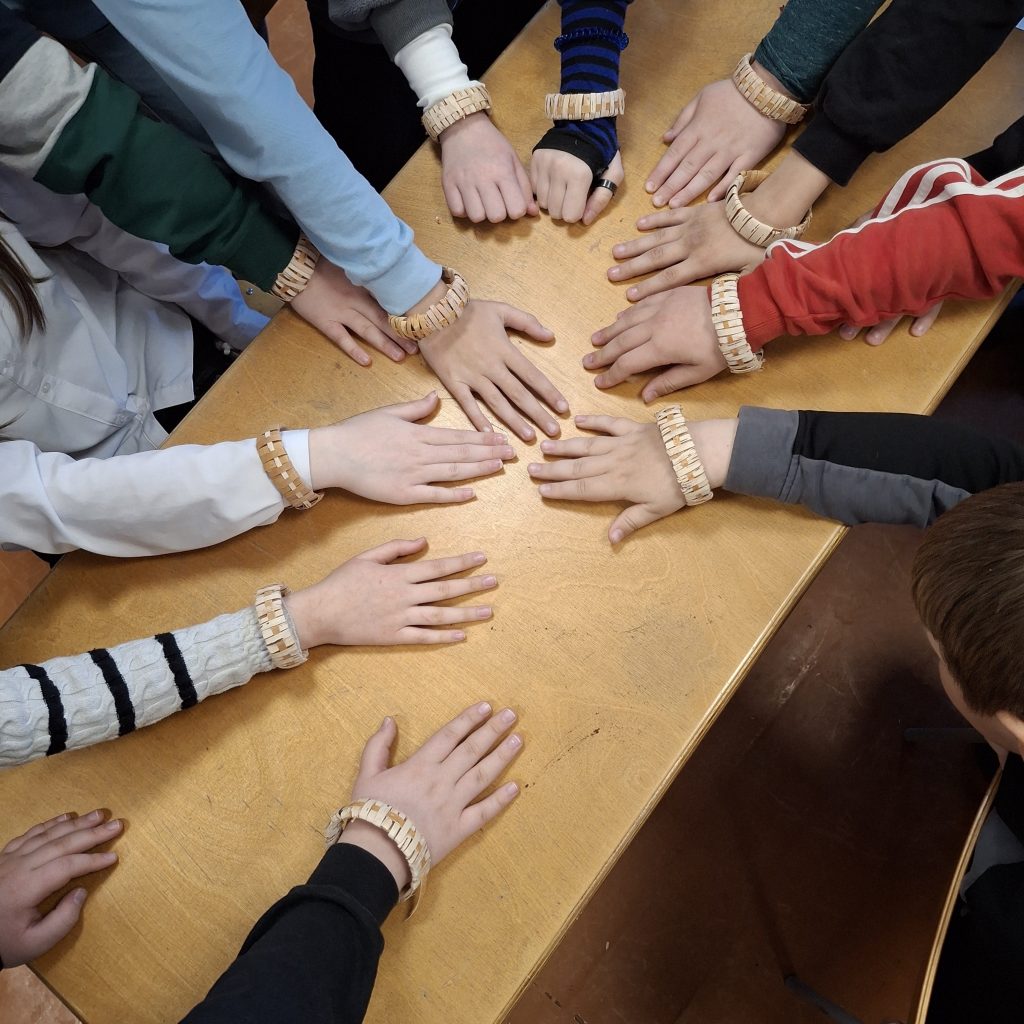On May 13, 2025, the fourth case study “Learn from Ancestors to be Open and Self-Confident in the Future!” workshop was held in Daugavpils Secondary School of Opportunities for the development of pupils’ cultural understanding, creative self-expression and critical thinking skills within the framework of the “Horizon Europe” project “The Value of Cultural Literacy in Europe” (CLiViE). The aim of the case study is to find out how creative collaboration in craft workshops, led by professionals, can expand pupils’ knowledge of traditional Latvian crafts and cultural values, as well as promote their interactive skills and respect for the “other”. To achieve the goal of the case study, in close cooperation with the school management and teaching staff, the 5th-grade pupils were selected as the object of research, which corresponds to the age group “10–13 years” and is distinguished by its multinational composition.
The fourth case study workshop, led by Ginta Vasiljeva, a design and technology teacher at Daugavpils Secondary School of Opportunities, was dedicated to birch bark weaving. At the beginning of the lesson, the pupils were offered a brief insight into the tradition of birch bark weaving in Latvia. G. Vasiļjeva emphasized that in ancient times, birch bark was a valuable material from which various household items were made: baskets, dishes, shoes, jewellery, etc. In her presentation, the class leader showed the works made by Latvian masters and talked about the technology of preparing birch bark, which she often uses in her creative work. The mentioned technology involves not only collecting, cleaning and drying birch bark, but also preparing strips of various sizes and soaking them in beeswax or linseed oil. G. Vasiļjeva demonstrated personally collected and processed strips of birch bark, which the children could look at and touch. In the second part of the lesson, the pupils were actively involved in the process of making birch bark bracelets, using the samples offered by the teacher as a basis. The work did not go smoothly at first, because, as the class leader noted, modern children have relatively poorly developed fine motor skills and often lack patience. However, thanks to the mutual cooperation of the pupils and the recommendations of the experienced teacher, the pupils managed to create truly unique and visually attractive bracelets. At the end of the lesson, the pupils engaged in an emotional cartography activity, during which they drew their emotions at that moment. A total of 26 pupils participated in the lesson, who were divided into two groups.
The case study leader, Dr. philol. Oksana Kovzele, a senior researcher at the Institute of Humanities and Social Sciences of Daugavpils University, participated in the workshop and observed its progress.
CLiViE webside: https://www.clivieproject.eu
The project has received funding from the European Union’s “Horizon Europe” Research and Innovation programme under the grant agreement No. 101132285.
Further information:
Daugavpils University senior researcher, Dr. philol. Oksana Kovzele
oksana.kovzele@du.lv
CLiViEProject #agentsforchange


